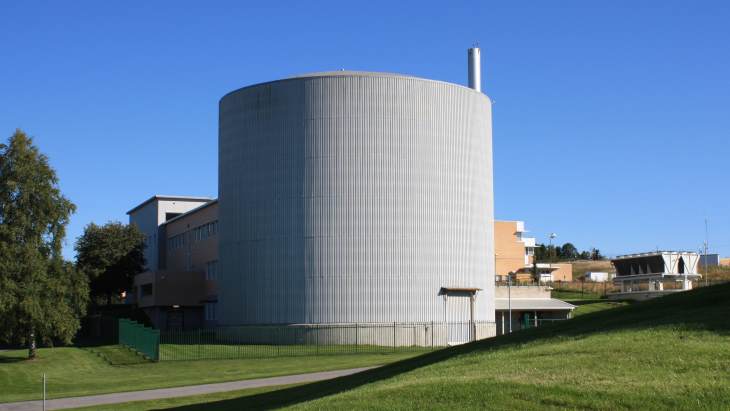Norwegian Nuclear Decommissioning (NND) has submitted an application for a licence to own and operate the two Norwegian nuclear facilities in Halden and Kjeller, as well as the operation of the waste landfill for low- and intermediate-level radioactive material in Himdalen.

The JEEP-II research reactor (Image: IFE)
Established as an agency under the Ministry of Trade, Industry and Fisheries in February 2018, NND is responsible for decommissioning the research reactors and other related nuclear infrastructure, as well as the safe handling, storage and disposal of radioactive waste.
Norway's two research reactors - the nuclear fuel and materials testing reactor at Halden and the JEEP-II neutron scattering facility at Kjeller - were declared permanently shut down by the Institute for Energy Technology (IFE) in June 2018 and April 2019, respectively.
There is a combined storage and disposal facility for low and intermediate-level radioactive waste (KLDRA) in Himdalen in Aurskog/Høland. Here, waste from Norwegian industry, health care and defence is stored, as well as waste from IFE. KLDRA is currently run by IFE and is funded through the state budget. It is owned by Statsbygg.
NND has now submitted an application for the transfer of the licences for the three facilities from IFE. The application was handed over on 21 December by NND Director Pål Mikkelsen to Per Strand, director of the Norwegian Radiation and Nuclear Safety Authority (DSA), the national authority and expert body in matters concerning radiation protection, nuclear safety and non-proliferation, radioactive contamination and radioactive waste.
"NND has assumed responsibility for the clean-up of the Norwegian nuclear facilities," Mikkelsen said. "Today we have reached an important milestone."
"The central thing for DSA is that safety is taken care of and that the application meets requirements given in law and regulations, international standards and conditions set for operating and owning nuclear facilities," said Strand.
NND submitted two partial applications in June and December 2021, respectively. They are now submitting the final application. DSA will carry out a thorough review of the application, which also includes a broad hearing.
Normally, it will take two years to process a licence application, noted Strand: "In order to do that for three different nuclear facilities, a number of prerequisites must be met. We first gain knowledge about that through our review of the applications."
Researched and written by World Nuclear News